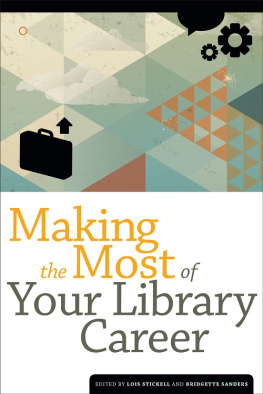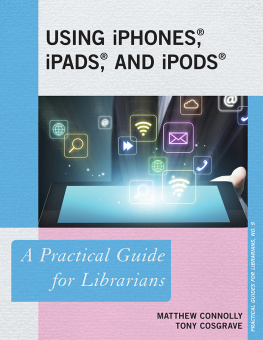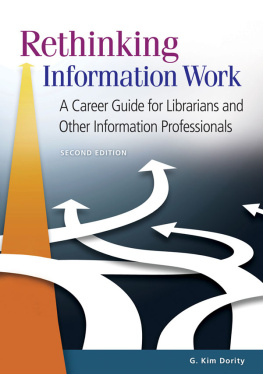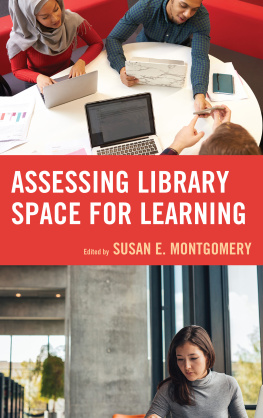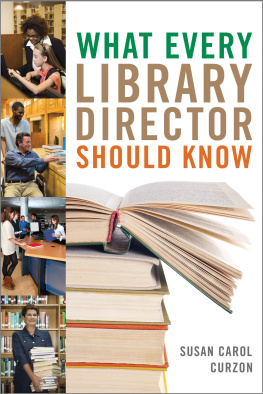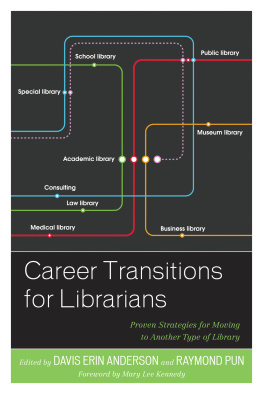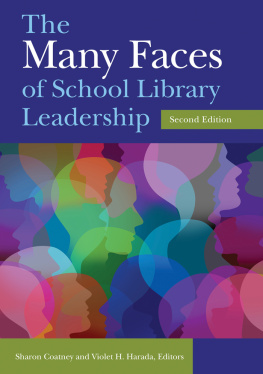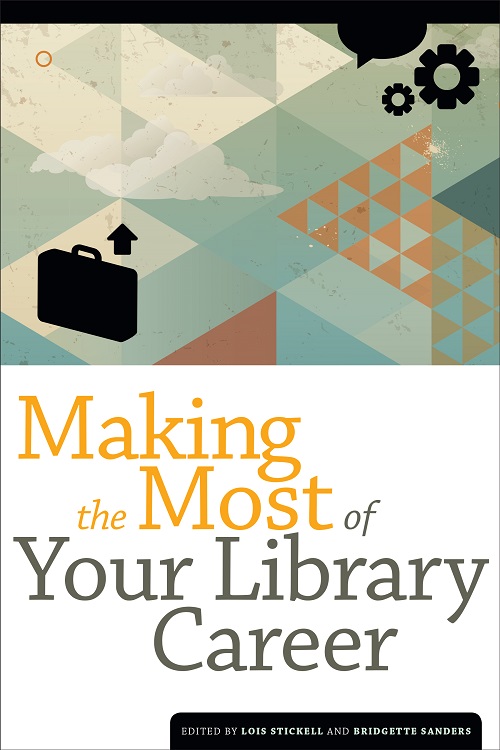
ALA Editions purchases fund advocacy, awareness, and accreditation programs for library professionals worldwide.
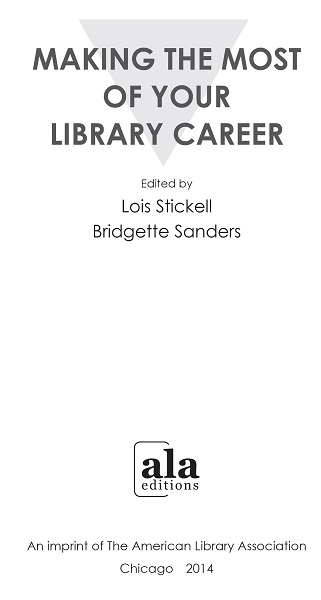
LOIS STICKELL is history and government documents librarian at J. Murrey Atkins Library, University of North Carolina at Charlotte in Charlotte, North Carolina. She received her MLS from Indiana University in Bloomington, Indiana. She has written about a slave revolt in South Carolina, and she and Bridgette Sanders received a grant to research student activism in the 1960s. She contributed a chapter about grants to the ALA book The Frugal Librarian: Thriving in Tough Economic Times by Carol Smallwood.
BRIDGETTE SANDERS is social sciences librarian at J. Murrey Atkins Library, University of North Carolina at Charlotte in Charlotte, North Carolina. She received her MLS from Atlanta University in Atlanta, Georgia. Her areas of interest are Africana Studies and Diversity. She and Lois Stickell have presented at several conferences, including the Southern Historical Associations annual conference and the Association for the Study of African American Life and History (ASALH).
2014 by the American Library Association. Any claim of copyright is subject to applicable limitations and exceptions, such as rights of fair use and library copying pursuant to Sections 107 and 108 of the U.S. Copyright Act. No copyright is claimed for content in the public domain, such as works of the U.S. government.
Extensive effort has gone into ensuring the reliability of the information in this book; however, the publisher makes no warranty, express or implied, with respect to the material contained herein.
ISBNs: 978-0-8389-1186-0 (paper); 978-0-8389-9598-3 (PDF); 978-0-8389-9599-0 (ePub); 978-0-8389-9600-3 (Kindle).
Library of Congress Cataloging-in-Publication Data
Making the Most of Your Library Career / edited by Lois Stickell and Bridgette Sanders.
p. cm
Includes bibliographical references and .
ISBN 978-0-8389-1186-0 (alk. paper)
1. Library scienceVocational guidanceUnited States. 2. LibrariansEmploymentUnited States. 3. LibrariansUnited StatesInterviews. 4. Career development. I. Stickell, Lois, 1951- editor of compilation. II. Sanders, Bridgette, 1962- editor of compilation.
Z682.35.V62M33 2014
020.23dc23 2013028023
Cover design by Kimberly Thornton. Image Shutterstock, Inc.
Contents
Lois Stickell and Bridgette Sanders
Melinda Livas
Theodosia Shields and Annie Payton
Tamara Acevedo
Katherine Farmer
Lynda Kellam
Jenny Dale
Greta Wood
Beth Martin
Phil Blank
Kelly Evans
Lois Stickell and Bridgette Sanders
This is the book we wish had existed when we started our library careers. It could have saved us some missteps and might even have changed the direction of our careers. To compile this book, we recruited ten from-the-trenches librarians to offer practical insights into how to better launch and manage your library career:
looks at first impressions through the interview process and during the first days on the job. While you are busy finding your footing, others are watching you and forming impressions that may be hard to change later. How you manage your early days on the job may influence your career for a long time.
provides views from two library directors about the qualities they look for in candidates.
offers advice for handling the unanticipated in your new work environment. This chapter includes lessons learned from a new manager and a frank look at some of the things she would do differently.
looks at ways to assess your new workplace to determine if there is a need for change and offers suggestions on ways to make changes diplomatically. It also addresses the minefield of toppling long-standing procedures and advises how to determine when or if to initiate changes.
examines the value of professional associations for your career. Will they further your career or are they too time consuming? Do they fit your interests and meet the approval of your supervisors?
focuses on the cyclical nature of a librarians year and advises how to manage your work more effectively. All libraries have peaks and lulls in workload that can bounce you from feeling overwhelmed to feeling bored. How you allot your time throughout the year can help you retain balance.
tells how to evaluate and prioritize your workload and gives advice on when to step back and say no. Many of us try to do too much, but this may not be best for us or our fellow employees. Taking a step back and determining where your energies are best used can benefit you and your library.
addresses using library school skills to find jobs outside of the library field. The writer developed a Plan B for finding a job when she couldnt get a job in a library. By assessing the skills she learned in library school, she was able to market herself in an entirely different field.
looks at unconventional library jobs and how to find your niche inside or outside of a library building. Some people love librarianship but dont love the bureaucracy and want more independence.
takes a hard look at moving on when a job doesnt work out. Even a good job may not be the right job for you. How you handle yourself when the job isnt working out may affect your future employment.
While some things can be learned only by experience, there are many things that others can teach you. We believe that practical advice from seasoned librarians is invaluable, especially in this changing environment, and we thank each author for contributing to this book. It really is the sum of its parts, and we are grateful for such strong, wise authors who were willing to share their knowledge and expertise.
The ways to success are as varied as people. This book was written to help new and future librarians formulate an organized approach to finding their career path.
Lois Stickell and Bridgette Sanders
Melinda Livas
Once the interview is over and you have the job, you will be dealing with many first impressions. Some of them are your own impressions of your new work environment; others are your colleagues impressions of you. What you do and say in the early days of your employment can impact the smoothness of your work life for the next several years. This chapter explores first impressions through the interview process and during those first days on the job.
GETTING MY FIRST LIBRARIAN JOB
While attending graduate school, I was fortunate to work part time as a library assistant in an academic library. This gave me my first impressions of how a library operates, and I was able to observe librarians in their element. This experience also gave me a glimpse of what to expect from my first job as an academic librarian. Although every academic library has its own unique culture, this experience provided a frame of reference.
Unfortunately, I was finishing library school just as the economy was in a tailspin and educational budgets were being obliterated. Knowing that the job market for librarians had become exceptionally competitive made for a stressful final semester. However, I decided to use that semester to do everything possible to increase my chances of getting a job after I graduated. So, in essence, I began working on my first impression before I ever met any potential employers. One of the ways I did that was to convince two librarians in the academic library where I worked to let me co-teach some of their library instruction classes. This was a great learning experience because I was working alongside experienced library instructors. The experience also gave me the confidence to teach library instruction to large groups of students and prepared me for a presentation during an interview. Finally, it helped me stay abreast of the latest Web 2.0 technology tools and gave me ways to embed the tools in my class assignments and presentations.
Next page
